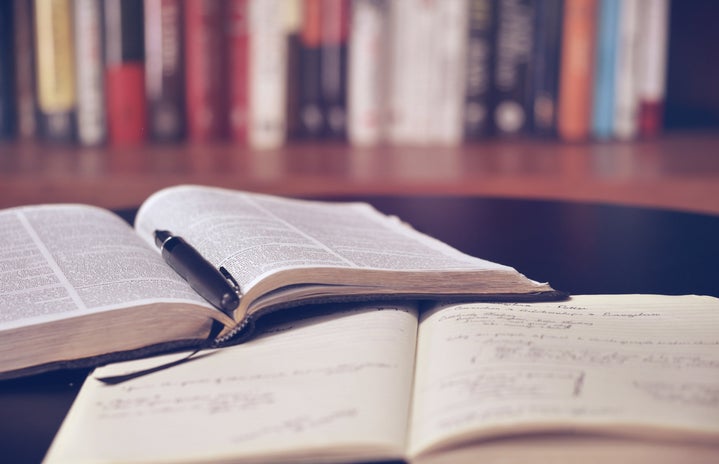I did not expect to graduate a year early. I planned to do the full four years for undergraduate, then go straight to law school. After my sophomore year, I realized I didn’t have two more years of credits left. I found myself uncertain about what I should do. I still wanted to go to law school, but I hadn’t taken the LSAT yet. I hadn’t even studied for it. The only options I saw were to take a gap year or to apply for a graduate program. I feared a gap year would lower my ambitions, and I wouldn’t want to return to the vigor of law school after a year spent working and making money. The graduate program won out. If I wanted to apply to graduate school, I needed to take the Graduate Record Examination (GRE).
I signed up in July to take the exam in November. I ordered some prep books to start studying. July flew by and I didn’t end up putting my books to use as much as I should have. My summer fun got in the way. Plus, I was working part-time. In August, my friend told me about a study program that planned study sessions and plans. All I had to do was log on and follow along. The program cost over $100, but as someone who needs structure in their lives, I thought it was worth a shot. I bought the program and spent another hundred-something dollars investing in the GRE.
By August, I realized the program I planned to apply to waived the GRE for that year because of the pandemic. While I felt somewhat relieved that I no longer had to meet a specific score, I still knew I needed to do well since I had already spent so much money on one exam. I started following the study program in hopes that all of my time and monetary investments would be returned in the future.
As a journalism major, I didn’t fear the writing and reading portion of the GRE. I spent years in classes learning to write and analyze passages. I thought everything was under control. But as soon as I did my first reading comprehension practice, I knew I underestimated the power of a standardized test. The forgotten formatting and foreign time limits on the practice tests left me questioning if I was really that great at reading comprehension. I thought that the GRE would be an advanced version of the SAT or an AP exam, and in a way, it was. I was just out of practice.
Not surprisingly, I did worse on the math practice. I thought my days of algebra and geometry were over when I got my high school diploma and started college as a journalism major. But the enemy reared its ugly head again. I remembered learning the same math concepts in eighth grade and throughout high school, but I couldn’t apply them anymore. Three years of not doing math left me reliant on calculators. When I found out the GRE doesn’t let students use scientific calculators (which I had used since middle school), I almost cried.
Overtime my reading and writing sections returned to the level I expected them to be. I just needed to adjust to the standardized formatting again. My math still lagged behind. I continued to feel frustrated with each lesson I completed it.
To go along with the study program, I tried to study for 30 minutes to an hour every day. The days alternated between reading and math. Even the short time frame I allotted for studying was difficult to meet between my part-time job and full-time class load. I found that waking up early and studying first was the best way to ensure I got my practice in. That way, as the rest of my homework mounted, I couldn’t use it as an excuse not to study.
There were days when my studying fell to the wayside. I didn’t touch the computer on my birthday weekend, or the weekend I visited my boyfriend. But for the most part, I tried to stay on track. I knew that if I wanted to do well, I needed to focus.
Math continued to be the most challenging section for me. My impatience with myself showed every time I came across an answer I didn’t remember how to solve. I reminded myself that the GRE wasn’t going to be an accurate estimate of my worth and intelligence. Math was not one of my strengths, but it also wasn’t something I planned on relying on in my career as a communicator or lawyer. I knew how to find the basic percentages and daily mathematics needed for everyday functioning. I struggled to remember how to find angles based on arcs. I dreaded the math portions, but I kept studying them. Over time, I saw my scores improve. They still weren’t stellar, but they were better than where I started.
I am now about two weeks away from taking the GRE. I am still nervous. But, I know that I have put in the time and effort to be successful. In my last few weeks of studying, I plan to utilize my early morning study sessions. I also want to focus more on the math portion of the exam since I know it is my weakest point. Despite my nervousness, I am eager to see how my hard work will pay off. Sure, I wish I had done a few more recreational math problems over the last few years. But with persistence and hard work, I am confident I will succeed on more than just the GRE.


